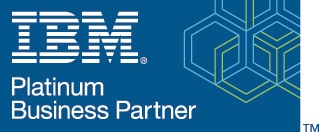November 20, 2019
Next-Gen Business Analytics Tools Paint a Bright Future
Powered by artificial intelligence and predictive algorithms, BA solutions help organizations mine data for emerging trends.

Early BA tools proved their worth by analyzing historical data to determine what happened, such as whether sales declined in a certain market, or which types of patients had higher-than-average hospital readmission rates. The latest generation of BA solutions adds predictive algorithms to ferret out additional insights — ones that help organizations make better decisions about the future.
Exploring Analytics Use Cases
As one example of data in action, universities can use next-generation BA tools such as IBM Cognos to identify which students are at a higher risk of dropping out. That analysis could explore whether reduced involvement with clubs, fraternities, sororities and other activities means weaker ties to the school.
Some schools also are using involvement data to predict which alumni are more likely to be receptive to donation appeals and to identify the most effective channels for reaching them. Retailers could take a similar approach to determine which customers are most likely to be interested in a product launch based on factors such as their purchase history and their participation in loyalty or rewards programs.
Smarter Analytics Solutions Power Decision-Making
Another big benefit of next-generation BA tools is that they can be used by nearly anyone in an organization — such as sales executives, human resources personnel, supply chain vice presidents and line-of-business managers — instead of just data scientists. For example, Cognos has 15 statistical algorithms, but users don’t have to know which one to apply to a particular data set. Instead, Cognos uses AI to study the data and then automatically chooses the right one.
AI also powers visualization, such as dashboards, so users can see the trends, correlations, red flags and other key findings in formats that are easy to understand and tough to misinterpret. Another AI-powered feature is natural language processing, which lets users pose questions to a BA tool in everyday language, such as, “Is weather having any effect on store traffic and sales?”
IBM Cognos also supports Mode 1 analytics, which presents findings in traditional report formats. This supports the use of new data sources with existing stores. New sources of data can provide a valuable perspective for organizations seeking a new way to look at their challenges. A new viewpoint can help many businesses gain a competitive advantage over other organizations in their industry.
These are just a few examples of how next-generation BA tools enable informed business decisions and strategies, which is why these products have become so popular. But despite this increase in popularity, many IT organizations still don’t fully understand which BA solutions best meet their needs and how they can take advantage of the most powerful features. A trusted partner with experience in business analytics can help organizations gain a deeper understanding of these tools and make a better decision about which solution is right for them.
This blog brought to you by:


